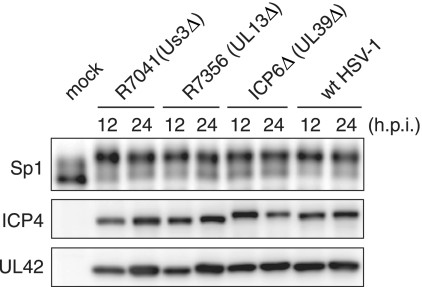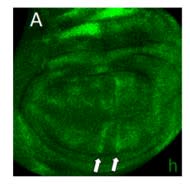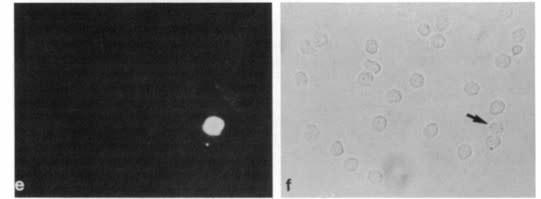Cat. #152795
Anti-PDL2 (soluble form) [Z64P2D3*H4] mAb
Cat. #: 152795
Sub-type: Primary antibody
Unit size: 100 ug
Availability: 1-2 weeks
Target: Programmed Cell Death 1 Ligand 2 (PDL2-Soluble form)
Class: Monoclonal
Application: ELISA ; IHC ; WB
Reactivity: Human
Host: Mouse
£300.00
This fee is applicable only for non-profit organisations. If you are a for-profit organisation or a researcher working on commercially-sponsored academic research, you will need to contact our licensing team for a commercial use license.
Contributor
Inventor: Ayham Alnabulsi
Institute: Vertebrate Antibodies Limited
Tool Details
*FOR RESEARCH USE ONLY
- Name: Anti-PDL2 (soluble form) [Z64P2D3*H4] mAb
- Alternate name: B7 dendritic cell molecule, B7-DC, B7DC, bA574F11.2, Btdc, Butyrophilin B7 DC, Butyrophilin B7-DC, Butyrophilin B7DC, CD 273, CD273, CD273 antigen, MGC142238, MGC14224, PD 1 ligand 2, PD L2, PD-1 ligand 2, PD-L2, PD1 ligand 2, PD1L2_HUMAN, PDCD 1 ligand 2, PDCD1 ligand 2
- Clone: Z64P2D3*H4
- Tool sub type: Primary antibody
- Class: Monoclonal
- Conjugation: Unconjugated
- Strain: Balb/c
- Reactivity: Human
- Host: Mouse
- Application: ELISA ; IHC ; WB
- Description: Monoclonal antibody which can aid understanding of programmed death ligand 2, in the secreted form. Background and Research Application PDL2 is involved in the costimulatory signal, essential for T-cell proliferation and IFNG production in a PDCD1-independent manner. Interaction with PDCD1 inhibits T-cell proliferation by blocking cell cycle progression and cytokine production.). PDL2 is an immune checkpoint receptor ligand which plays a role in negative regulation of the adaptive immune response.PD-L2 is one of two known ligands for Programmed cell death protein 1 (PD-1). PD-1, is a key immune checkpoint. Currently several anti-PD-1 antibodies or blockers are in cancer clinical trials and showing promising outcomes. This antibody will allow scientists examine, for the first time, the clinical significance of PDL2-secreted form.
- Immunogen: Ovalbumin-conjugated synthetic peptide KAVFFKRHN
- Immunogen uniprot id: Q9BQ51
- Isotype: IgG2b kappa
- Myeloma used: P3X63Ag8.653
- Recommended controls: IHC: formalin-fixed, paraffin-embedded multi tumour tissue microarray
Target Details
- Target: Programmed Cell Death 1 Ligand 2 (PDL2-Soluble form)
- Tissue cell line specificity: IHC: formalin-fixed, paraffin-embedded multi tumour tissue microarray
- Target background: Monoclonal antibody which can aid understanding of programmed death ligand 2, in the secreted form. Background and Research Application PDL2 is involved in the costimulatory signal, essential for T-cell proliferation and IFNG production in a PDCD1-independent manner. Interaction with PDCD1 inhibits T-cell proliferation by blocking cell cycle progression and cytokine production.). PDL2 is an immune checkpoint receptor ligand which plays a role in negative regulation of the adaptive immune response.PD-L2 is one of two known ligands for Programmed cell death protein 1 (PD-1). PD-1, is a key immune checkpoint. Currently several anti-PD-1 antibodies or blockers are in cancer clinical trials and showing promising outcomes. This antibody will allow scientists examine, for the first time, the clinical significance of PDL2-secreted form.
Applications
- Application: ELISA ; IHC ; WB
Handling
- Format: Liquid
- Concentration: 1 mg/ml
- Unit size: 100 ug
- Storage buffer: PBS with 0.02% azide
- Storage conditions: Store at -20° C frozen. Avoid repeated freeze / thaw cycles
- Shipping conditions: Shipping at 4° C
Related Tools
- Related tools: Anti-PDL2 (soluble form), Recombinant [Z64P2D3*H4]


![1fd95695-faff-4626-a2cf-2a4d07b8b7d5.jpg Immunohistochemistry was performed on formalin-fixed; paraffin-embedded human testis seminoma tissue sections using anti-PDL2 (soluble form) [Z64P2D3*H4]. Cytoplasmic staining was observed.](https://cancertools.org/wp-content/uploads/1fd95695-faff-4626-a2cf-2a4d07b8b7d5.jpg)




